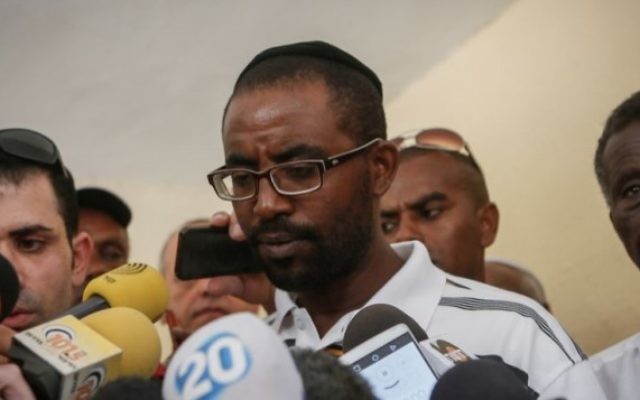Can Turkey secure release of Israelis from Gaza?
Are four heartbroken Israeli families closer to seeing their children return home from Gaza, now that Israel and Hamas have a new mutual friend?

Are four heartbroken Israeli families closer to seeing their children return home from Gaza, now that Israel and Hamas have a new mutual friend?
The friend is Turkey, which, as well as cracking down on opponents domestically after the recent coup, is overhauling its relationship with Israel. It has reconciled with Israel, and agreed to help get the four Israelis in question – two dead and two alive – back home to Israel. It is positioned to help due to the fact that Turkey is very close to Hamas and sees itself as Gaza’s international patron.
The families of the Israelis in question are nervously watching to see if this succeeds, and the fate of Turkey’s efforts is likely to have a major impact on life for all Israelis.
This is because Turkey’s success or failure in getting these Israelis back home will be a kind of litmus test for whether it can leverage its connection with Hamas for the positive, and to the benefit of its newly restored friend Israel.
The families of three of the four Israelis held in Gaza were vocal in opposing the Israel-Turkey reconciliation deal, saying that given Turkey’s sway over Hamas, no deal should be agreed to unless it actually ensured their children’s return.
Ilan Mengistu, the brother of Avera Mengistu, a mentally unstable Jewish Israeli who is thought to have willingly crossed to Gaza in September 2014, said that ministers “should be ashamed of themselves” for approving the deal. The other living Israeli who is in Gaza, also thought to be a mentally unstable man who crossed of his own accord, is an Arab citizen and has not been identified.
Zehava Shaul – the mother of Oron Shaul, who was killed during the 2014 fighting – said it was “inconceivable” that the deal was accepted without bringing her son’s remains home. And Tzur Goldin, the brother of another slain soldier Hadar Goldin, said that the deal overlooks Israel’s “national interest”.
To these families, the moment when Israel stood on the cusp of signing its deal with Turkey was a rare one – when officials in Jerusalem could have absolutely insisted that there was no reconciliation without their children coming home; that Turkey should not have seen a shekel of the compensation it was given for the deaths on the 2010 flotilla without a satisfactory outcome for them
But there is a belief among some policymakers that the seemingly awkward mutual friendship arrangement, with Israel and Turkey’s relations warming as Turkey-Hamas relations thrive, could actually lead to Turkey mediating the interests of its two friends. Part of this would mean Turkey using its influence with Israel to improve circumstances in Gaza, but the other piece of this could be to bring some sense of control over Hamas’s behaviour.
Turkey understands that Hamas will not drop its ideological hatred towards Israel any time soon, but there is a possibility that Turkey can use its muscle to get Hamas to ameliorate some particular complaints that attract international sympathy for Israel. This would be a way for Turkey to score points with Israel without losing face in the Arab world, and for it to attempt some revival of its reputation internationally, and distract from the harsh crackdowns that the Turkish leadership is conducting domestically.
The real test, however, is likely to be whether Turkey can get the Israelis back home and do so at a reasonable “price”. There are already rumours of Hamas setting its sights on what is being called a “Shalit 2” deal – something reflecting the major concession from Israel of the deal that freed the Israeli soldier Gilad Shalit from Gaza in return for 1027 Palestinian prisoners walking free from Israeli jails. Such demands would bring angry responses from Jerusalem.
If Turkey can bring about a deal, and do so at an acceptable “price” for Israel, this could signal that it has some ability to rein in Hamas. Not to have the Islamist movement releasing doves and embracing Israelis, but at least having another set of considerations – namely a need to consider the wishes of its patron Turkey – before unleashing its attacks. It would not neutralise Hamas, but may make the movement more cautious in how it uses violence.
If there is some sense that Turkey’s respectability is on the line when Hamas’s behaviour is at its worst, it could mean a glimmer of hope for Israel about its Islamist neighbour to the south. On the other hand, if Israel was happy to reconcile with Turkey without a clear outcome on the missing Israelis, this could be setting the stage for their saga to continue for years, and for Turkey to continue tolerating Hamas even at its most provocative.
NATHAN JEFFAY

comments